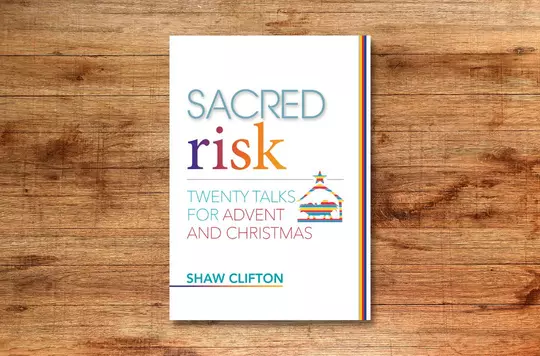24 November 2022
Book preview: ‘Kindness is for life, not just for a pandemic’
Philip Halcrow

Cathy Le Feuvre teamed up with a friend to write The Gift of Kindness. She speaks with War Cry's Philip Halcrow about how kind acts may be able to help make life better.
As a journalist and broadcaster, Cathy Le Feuvre had been gathering stories for BBC Radio Jersey on a topical issue. Over in Northern Ireland, her friend Debbie Duncan, a lecturer in nursing, had read up on the subject. Making use of their different backgrounds, the two long-time friends have now collaborated to write a book on their common interest in the subject of kindness.
‘During the pandemic, it was almost as if society had rediscovered kindness,’ Cathy tells me. ‘People suddenly started looking out for each other. We did “clap for carers”. Everybody seemed to be putting rainbows in their windows, and Debbie and I saw a lot of people on social media asking if they could help others. In Jersey we had a Facebook page where people were messaging things like: “I’ve got some extra spuds – would anyone like them? I’ll come and put them on your doorstep.”

‘At the time I had been part of a team rolling out the BBC’s Make a Difference campaign. As a communities journalist, my job was to gather stories and make sure they got read out on air.
‘I had also done some PR work for the Kindness Festival, which a guy called Brian Clarke puts on in Jersey every two years and which invites a couple of dozen little charities to set up stalls. When I mentioned the festival to Debbie, she said she had been thinking of writing a book about kindness for a while.’
Cathy explains that she and Debbie wanted to explore why individuals are kind and whether it would be possible to build a better world if people created a kinder culture. Consequently, they looked at the causes and effects of kindness from a variety of perspectives.
‘The psychology of kindness is a hot topic at the moment,’ says Cathy. ‘While we were writing the book the BBC and the University of Sussex ran the Kindness Test on Radio 4. It hadn’t quite ended when we finished the main text, but Malcolm Duncan – Debbie’s husband – was able to include some of the results in his foreword. The study found, for instance, that lots of people felt social media made it harder to be kind, because it can be a place where people are quite nasty.’

As well as psychology, Cathy and Debbie wanted to investigate whether kindness had any physiological effects.
‘Debbie has a nursing background, and she is interested in studies that have shown the medical benefits of kindness. It seems that oxytocin, the “love hormone”, is released if you are kind or receive kindness, which helps with self-esteem and lowers blood pressure, and that kindness increases dopamine, which makes you feel euphoric.’
While Debbie looked into the science, Cathy explored where and when kindness has appeared in literature, notably the writings associated with religions.
‘What is known as the Golden Rule is basically what Jesus said: “Do unto others what you would have done to you.” When he said it, he would have been quoting from Judaic Scripture. But it also seems to be a tenet that goes through nearly every religion in the world. I have seen it in the writings of the Muslim, Hindu and Baha’i faiths and in Zoroastrianism. Something along similar lines can also be found in humanism.
‘Some anthropologists even believe that the idea of helping others is what raises humans away from just being animals. It goes beyond the day to day. It is something almost spiritual.
‘It’s clear that kindness has been passed down through the centuries. So kindness is for life, not just for a pandemic.’
Cathy has noted stories of how kindness can make its presence felt in the world. Sometimes it takes the shape of an individual act – as when ice cream seller Stuart Young marked his own birthday during the early days of the pandemic by driving his van to Jersey General Hospital and handing out 760 free ice creams. At other times it is encapsulated in organised events, such as World Kindness Day, held annually on 13 November, when people are encouraged to set out with the intention of performing kind acts for friends, family members, colleagues or even strangers.
‘Kindness Day is not about making it the only day on which to be kind, but it simply helps people to focus on kindness and to carry it on,’ says Cathy. ‘It draws attention to the need for humans to be more aware, caring and compassionate.’
Cathy and Debbie’s The Gift of Kindness contains not only observations of kindness, but also tips on being kind.

‘There are little acts of kindness that we can carry out,’ Cathy tells me. ‘It can be as simple as letting someone pass through a door before you or giving someone your seat on the bus or the Tube. It’s just about being aware of maybe what people are needing rather than being totally engrossed in ourselves.
‘It might even be to smile at people. When we’re walking down the street, we don’t know what the person in front of us is feeling. They might be having the worst day. If I’ve been having a terrible day but then someone just looks up and says “hi”, it’s good to know that I’m not on my own – someone has recognised that I exist. And that’s a kind thing to do.’
The word ‘kindness’, she says, can denote a variety of experiences, action, tendencies and attitudes. It can be spontaneous or organised or cultural.
‘Since the book came out, I have had a few chats with groups about whether we can build a kinder world. We’ve discussed whether politics, education and media can be kinder. Every time, we’ve come to the conclusion that it always starts with one person. Kindness in a culture starts with the individuals in that society deciding that they want to help someone else.’
The two authors of The Gift of Kindness may have different work backgrounds, but they both draw ideas of kindness from one particular source. While acknowledging that Christians don’t have a monopoly on the virtue, Cathy says: ‘What has made a difference to my understanding of kindness is the idea that humankind has been shown kindness by God.‘
God has been greatly kind to his creation by giving us the beautiful world that we have around us and all the different personalities of people. He didn’t have to do that. He didn’t have to create sunsets and rainbows.
‘But his ultimate kindness is sending Jesus. He didn’t want us all to end up separated from him, so he sent Jesus, his only Son, to die so that we didn’t have to.
‘As a Christian, I get a model of kindness from God himself.’
But, whatever a person’s world view, Cathy has one piece of advice on kindness. ‘Just give it a go,’ she says. ‘If you’re shy about offering help to someone, just give it a go. Deliberately try to do one act of kindness a day. Listen to other people. And keep your eyes open for anyone who might be struggling. Even a small act of kindness could mean the world to them.’
Written by

Philip Halcrow
Deputy Editor, War Cry
Discover more

War Cry
Features, comments and reviews with a faith focus.

'The perfect way to get yourself in the mood for Christmas'
Major Mal Davies previews Celebrating Christmas with The Salvation Army at the Royal Albert Hall.

Preparing hearts and minds for Christmas
Major Philippa Smale (Cardiff Ely) reviews O Come, O Come, Emmanuel, a collection of devotional readings for Advent.

A Christmas feast – in bite-sized chunks
Major Mal Davies reviews Sacred Risk by General Shaw Clifton (Retired).